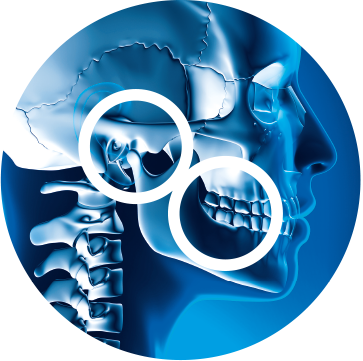Increasingly, patients who show up at the dentist’s office are hearing about such a term as “bruxism.” What is it, when do we diagnose it, and what are its causes, symptoms and consequences?
Bruxism is defined as habitual, usually unconscious, teeth grinding and clenching that can occur both at night and during the day. Its aetiology is not yet fully understood. However, research shows that it is a multifactorial disorder that requires an interdisciplinary approach by specialists in various fields. Bruxism is the body’s way of discharging accumulated energy. In addition, stress, malocclusion, carious cavities, missing teeth, frequent and prolonged gum chewing or conditions related to the nervous system, among others, are other causes of its formation.
Symptoms

Symptoms accompanying bruxism can involve the oral cavity, but systemic ailments also occur. Often patients do not notice clenching or grinding of their teeth in themselves. Family members inform them, or only the emerging dysfunctions worry patients. Symptoms caused by bruxism include headaches and neck pain, abrasion of the hard tissues of the teeth, cracking of the enamel, recession of the gums, skipping and crackling in the temporomandibular joint, hypersensitivity of the teeth, biting the cheeks, a feeling of tension in the facial muscles, and even tinnitus.
Diagnosis
Diagnosis should begin with an examination performed by a dentist, taking into account the patient’s complaints and helping find the cause of the symptoms. At Mio-Dent, doctors specialising in treating conditions, after proper diagnosis, and knowing the underlying cause, can begin treatment appropriate to the specific case. Often during therapy, it is necessary to cooperate with prosthodontics, orthodontics or physiotherapy specialists so that treatment is not just about eliminating the symptoms but also the cause. Depending on the situation, the treatment uses relaxation splints, orthodontic treatment, physiotherapy, self-relaxation, and changes in habits.
Signs of bruxism should not be underestimated. Over time, they can worsen and cause irreversible oral cavity or temporomandibular joint changes. Our clinic provides interdisciplinary work of doctors of various fields in one place, without additional travel. Therefore, if you notice any symptoms in this condition, it is better to go for a follow-up visit to dispel any doubts and take necessary measures.
